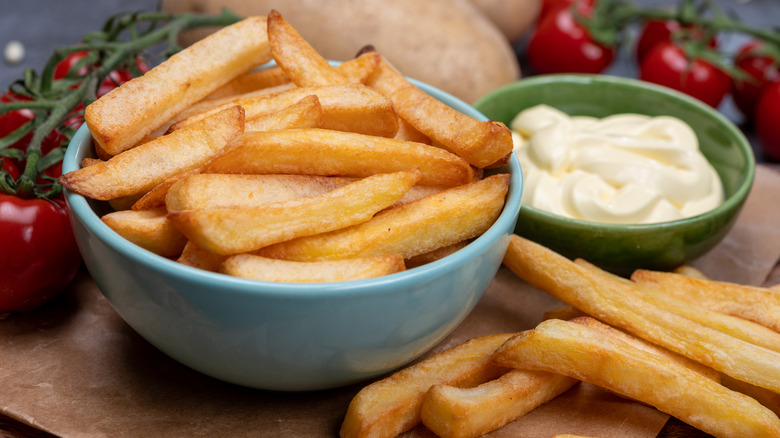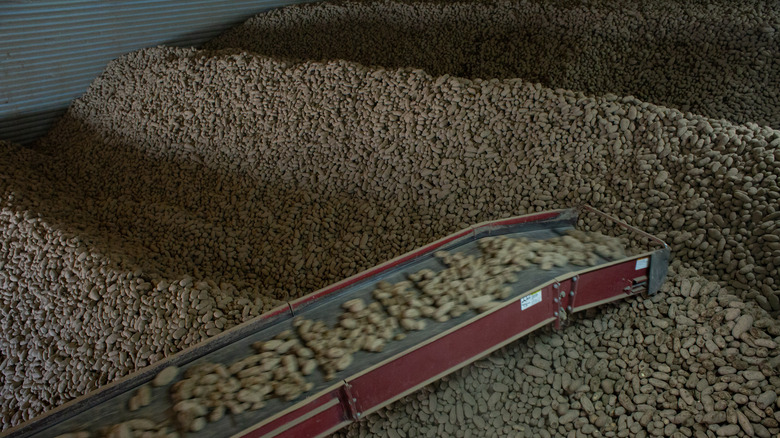Remember When Belgians Were Asked To Eat Twice As Many French Fries?
Imagine this scenario: You settle down to watch the news, anticipating an avalanche of doom and gloom, possibly broken up by some cute news about pets. Instead, you hear a man making a desperate plea to his fellow citizens. What does he want? He wants you to eat more french fries. It sounds like a fantasy, but for the citizens of Belgium, it became a reality in 2020, when they were called upon to double their fry intake (via The Brussels Times).
French fries, as it turns out, are quite inaptly named, as they almost certainly originated in Belgium. The country is rightfully proud of this gift to the world, and fries retain a significant role in the culture to such a degree that UNESCO added the Belgian fry to its list of cultural treasures in 2017 (via Brussels Express). Belgians traditionally use bintje potatoes, a significant cash crop for the country, which, by 2020, was producing an average of 5.3 million tonnes of potatoes yearly, per Reuters.
Belgians clearly love their fries, so why would they need convincing to eat more? Like so many economic consequences in the recent past, you can blame this one on COVID.
The coronavirus pandemic created a potato surplus
The Belgian potato industry relies heavily on three things that were virtually frozen during the peak of pandemic lockdowns: restaurants, festivals, and international trade. According to Reuters, closures of cafes and restaurants in the spring of 2020 caused an 80% drop in potato demand, which also plummeted on a global scale. Fry stands once made a big profit on music festivals, but those too were shut down. With few buyers inside or outside the country, roughly 750,000 tonnes of potatoes ended up stockpiled in warehouses (via BBC).
Something had to be done to save the potatoes from going to waste, and that's where Romain Cools stepped in. Despite his name, Cools is not actually an '80s action hero, but rather the secretary general of Belgapom, the association that oversees Belgium's potato industry. As BBC recounts, Cools made pleas in the Belgian media, asking the nation's citizens to eat french fries at least twice a week, stating that one serving a week was the average.
Of course, the problem was a lot more complex than "we need to eat more fries." Cools had to enlist help from elsewhere. He worked with the Belgian government, which purchased some of the surplus potatoes to redistribute at food banks, a small bright spot in the crisis (via ABC News). In their year-end report, Belgapom says more potatoes were donated for use as animal feed, and perhaps most excitingly, for green energy, a more sustainable (and healthier) solution.

